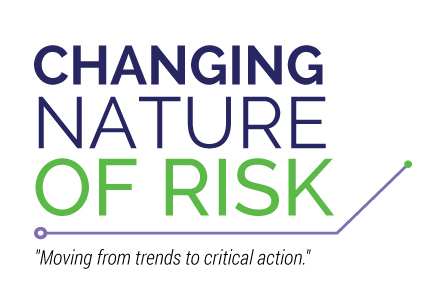Industry Maturity Index: 'Short-term (1-2 years)' 
Why this is important: The ACT Changing Nature of Risk workgroup feels that Voice Computing, also known as Conversational Computing is the next major step in user interfaces. It is now changing the way people interact with and use computers.
The advent of mobile technology added new users and required a redesign of existing processes. Voice Computing will require similar modifications to create voice friendly platforms and services. New services that were not thought of will become common. Probably the most significant new service will be conversational commerce.
What is it? Voice computing includes three distinct categories:
- Voice to Text: You talk to a device and it converts your speech to text. This is commonly known as Voice Recognition.
- Text to Voice: The device converts text to voice to provide verbal information. A example would be your GPS giving you voice instructions to help you get to a destination.
- Conversational: You talk to a device and it talks back to you. Early examples are Siri and Google Now. The most talked-about current example is the Amazon Echo using Alexa and also Google Home.
Broad Implications / Uses: This has applications across many spectrums of our lives;- Voice command for auto (Examples: hands-free phone, GPS and other actions)
- Voice command in the home (Examples: smart home applications, virtual assistants, security systems, appliances)
- Voice command for mobile devices (Examples: cell phone, tablet, laptop)
Business use (Examples: interactive customer experience, virtual assistant, voice-to-text) As voice recognition technology and search capabilities improve, connected devices, vehicles and homes will become more mainstream. Integration with third party applications will also offer many new options. Economic Impact(s): Successful voice computing is evidence of the closing gap between user intention and computer understanding; something that has until now required keyboards, computer screens, and extensive training. As the pace of technology growth continues to accelerate, we are seeing more frequent examples of this new type of computer interaction. The willingness for consumers and businesses to interact with simple voice tools suggests that most would eagerly adopt future improvements of this technology. Amazon alone has funded 18 startups to date in order to expand on the services provided by their Echo devices. [1]Venture capital firms have invested almost $10B over the past five years in emerging voice technology companies.[2] These investments and others across industries will likely yield significant advances in voice technology, though today we remain far from conversational computing. Several macro-economic factors can be considered for any organization:- Productivity in operations
- Reducing barriers between language and culture, as well as addressing disabilities.
- Centralization and increases in sales
Insurance Industry Implications: Conversational Computing can have positive and negative impacts to many areas of our industry;Amazon's home voice assistant, "Alexa", rocketed into the spotlight this year, accessible by the Echo device. Aviva, Grange Insurance, Nationwide, Liberty Mutual, and Safeco Insurance currently have Alexa-enabled skills available for policyholders. However, the industry is still testing how to take advantage of the technology. Intelligent Personal Assistants (IPA) could add an interesting way to augment employee knowledge. - Positive Impacts
- A new way for customers to interact with you, eventually to become an expected interaction.
- Employee productivity is improved (it is faster to talk than to type)
- Employee augmentation -- a faster way to find the correct answer, as well as provide additional support or contact with existing staff.
- Less distracted driving
- Negative Impacts
- Increase liability as voice controlled devices are integrated into manufacturing organizations
- Noisier offices?
- Insurance technology startups will be able to respond faster to this interface trend
- Industry not able to meet customer experience expectations
Recommended Actions: Agents - - Ensure you and staff are aware of the basic voice computing concepts and applications (see 'Resources').
- Review current systems and processes to see how voice could be incorporated to improve customer experience.
- Research and ensure agency staff are aware of any coverage-related issues and opportunities in order to best cover customer needs and risks.
- Understand existing & emerging applications, such as the ability to send Certificates of Insurance using Echo or Google Assistant (see 'Resources' below)
Carriers - - Experiment with voice capable devices like the Amazon Echo.
- Understand what infrastructure changes might need to be made to enable voice computing.
Vendors - - Ensure systems and platforms can receive voice computing input.
Examples/Resources: Call to Action:- Educate yourself on this topic
- Educate your staff on this topic
- Ask vendors how they will approach voice interfaces
- Talk to insurance company partners about voice interfaces
Citations: [1] TechEmergence [2] according to tech pioneer Quid
Authors: Duke Williams, Kathleen Weinheimer, Bradley Williams, Steve Anderson
|